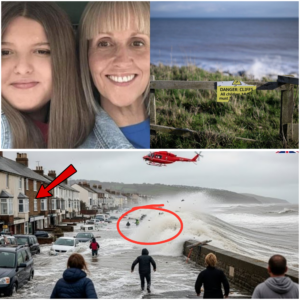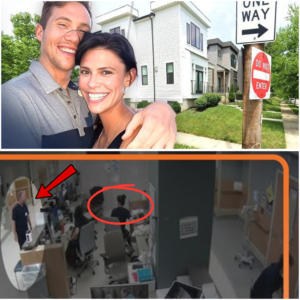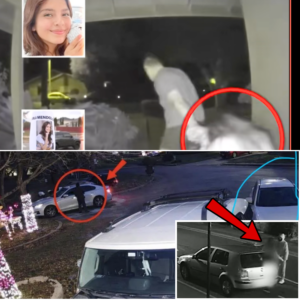In the enchanted realms of Hyrule, where silent heroes wield master swords and princesses wield wisdom like a triforce pendant, Nintendo’s bold leap into live-action cinema has ignited a powder keg of fan fervor—and not all of it is heroic. As production ramps up on the untitled The Legend of Zelda movie, set for a May 7, 2027 theatrical debut from Sony Pictures and Nintendo, a peculiar meme storm has swept social media: trolls and gamers alike photoshopping The Last of Us star Bella Ramsey into roles from gravedigger Dampé to the titular princess herself. “Fans continue to tease Bella Ramsey following the news that The Legend of Zelda is getting a live-action adaptation,” the viral whispers go, with edited images flooding X (formerly Twitter) and Reddit. Ramsey, ever the poised responder, clapped back swiftly and sharply, fueling a debate that’s as layered as a dungeon crawl. Is this harmless ribbing born from her Ellie backlash, or a symptom of deeper divides in gamer culture? With filming underway in New Zealand’s lush wilds—first-look photos dropping just days ago—these jabs underscore the high-wire act of adapting a 40-year franchise that’s sold over 140 million copies worldwide.
The saga traces back to November 2023, when Shigeru Miyamoto, Zelda’s co-creator and Nintendo’s legendary producer, stunned the world by confirming a live-action film. Partnering with Avi Arad (the Spider-Man savant) and Sony—Nintendo footing over 50% of the bill—this isn’t a cash-grab spin-off; it’s a passion project Miyamoto had nurtured for a decade. “I know we face an extremely high hurdle in producing a film that will not disappoint the global fan base,” he cautioned in his announcement, echoing the ghosts of flops like the 1993 Super Mario Bros. But buoyed by Illumination’s $1.3 billion Super Mario Bros. Movie, expectations soared. Wes Ball (Maze Runner, Kingdom of the Planet of the Apes) directs, promising a “realistic” fantasy-adventure—”not Lord of the Rings, its own thing”—with mo-cap ambitions akin to Avatar. Scripted by Derek Connolly (Jurassic World), it’s shot on location for that tangible Hyrule grit: misty forests, towering castles, korok rustles in the underbrush.
Casting dropped like a cucco bomb in July 2025: 21-year-old British rising star Bo Bragason as Princess Zelda, Benjamin Evan Ainsworth (Pinocchio’s voice, Son of a Critch) as the mute Link. Miyamoto beamed on X: “I am very much looking forward to seeing both of them on the big screen.” First-look images from November 17—shared via Nintendo’s app after set leaks—show Bragason in a Breath of the Wild-inspired tunic, exuding regal poise amid verdant backdrops; Ainsworth’s Link, green-clad and stoic, peers with that signature Hylian intensity. Dicen Lachman joins as Impa, the sheikah warrior, her curved blade gleaming in leaks. No plot deets yet—speculation swirls around a Breath of the Wild/Tears of the Kingdom mashup, given the costumes—but it’s clear: youth, authenticity, fidelity to the games’ spirit.

Enter Bella Ramsey, the 22-year-old non-binary dynamo whose Ellie in HBO’s The Last of Us (2023-) earned Emmys and enmity. From Game of Thrones‘ pint-sized Lyanna Mormont—”The North remembers!”—to Catherine Called Birdy, Ramsey’s ferocity shines. But Ellie’s game likeness? Fans eviscerated: “Doesn’t look a thing like her!” petitions cried, morphing into gendered vitriol. Fast-forward to Zelda rumors: May 2025 leaks eyed Hunter Schafer (Euphoria) for Zelda—her ethereal vibe mirroring Twilight Princess Zelda sparked “#PeakCasting.” Backlash exploded: transphobia accusations flew as gamers decried “woke Hollywood.” Schafer, a childhood fan, gushed, “That would be so cool.” But when Bragason landed it? Meme apocalypse: Ramsey as “Link,” “Zelda,” even Tingle. X erupted: “Found a role for Bella Ramsey” (photoshopped as Dampé); “Bella Ramsey as Princess Zelda?” (satirical fancasts). Reddit’s r/Breath_of_the_Wild joked, “Fake cast. Link is actually played by Bella Ramsey.” It’s peak internet: weaponizing Ramsey’s prior hate to dunk on “bad casts.”
Ramsey “immediately responded”—not with fury, but wit. On her verified X (spotted via fan pages like @BellaRamseyHQ), she quote-tweeted a viral edit: “If Nintendo needs a gravedigger, hit me up. I’ve got the jawline for it. 😏 #ZeldaMovie #HylianHustle.” Fans erupted: supporters hailed her grace (“Queen handling trolls like Ganon”), detractors doubled down (“See? Even she knows”). It’s classic Ramsey—self-deprecating, unflinching. In TLOU press, she’d addressed hate: “It’s the first time I’ve ever had a negative reaction… I became addicted to the comments.” Here, she flips the script, owning the memes before they metastasize.
This isn’t isolated; it’s culture war cosplay. Zelda’s fandom—spanning 1986’s NES pixel art to Echoes of Wisdom‘s (2024) gender-flipped heroics—craves fidelity post-Mario‘s triumph. Live-action trepidation lingers: “Animated was the way,” fans griped at announcement. Schafer’s rumor amplified divides—pro: “She is Zelda”; con: “Not my Zelda.” Ramsey memes bridge it: sarcastic jabs at “forced diversity” (echoing Ellie rage) while mocking Schafer stans’ hypocrisy (“Hated Bella for looks, now hate perfect look?”). Broader context? Gaming adaptations battle “get woke, go broke”: Borderlands flopped, Arcane soared. Nintendo, post-Mario, plays safe: young unknowns, no A-listers like Zendaya fancasts. Ball’s vision—”ambitious, confident”—prioritizes essence: Link’s silence, Zelda’s wisdom, Ganon’s menace (un casted).
Yet the teasing persists, a digital rupee grind. X trends #BellaZelda spike post-leak, with edits garnering millions: Ramsey as “empowered” Impa, “bald black lesbian Link” for lols. Defenders cry bullying: “Leave Bella alone—she slays Ellie.” Critics: “Accountability for ‘looks matter’ brigade.” Ramsey’s clapback diffused some, but underscores toxicity: actors as avatars in fan feuds. As production hums—leaks hint koroks, champions’ tunics—the real boss fight? Unity. Miyamoto’s hurdle: delight 140 million without alienating purists.
Will Zelda echo Mario‘s joy or Uncharted‘s meh? Early signs: promising. Bragason’s poise evokes Zelda’s gravitas; Ainsworth’s gaze, Link’s resolve. No mo-cap overload, practical effects for that lived-in Hyrule. Score whispers: orchestral nods to Koji Kondo’s ocarina leitmotifs. But memes linger, Ramsey’s retort a shield. In Hyrule, heroes persevere—perhaps Hollywood’s too. As Ball quips, “Keep the money on the screen.” For gamers, it’s simple: play the game, not the hate. May 2027 beckons—may it be legendary.


